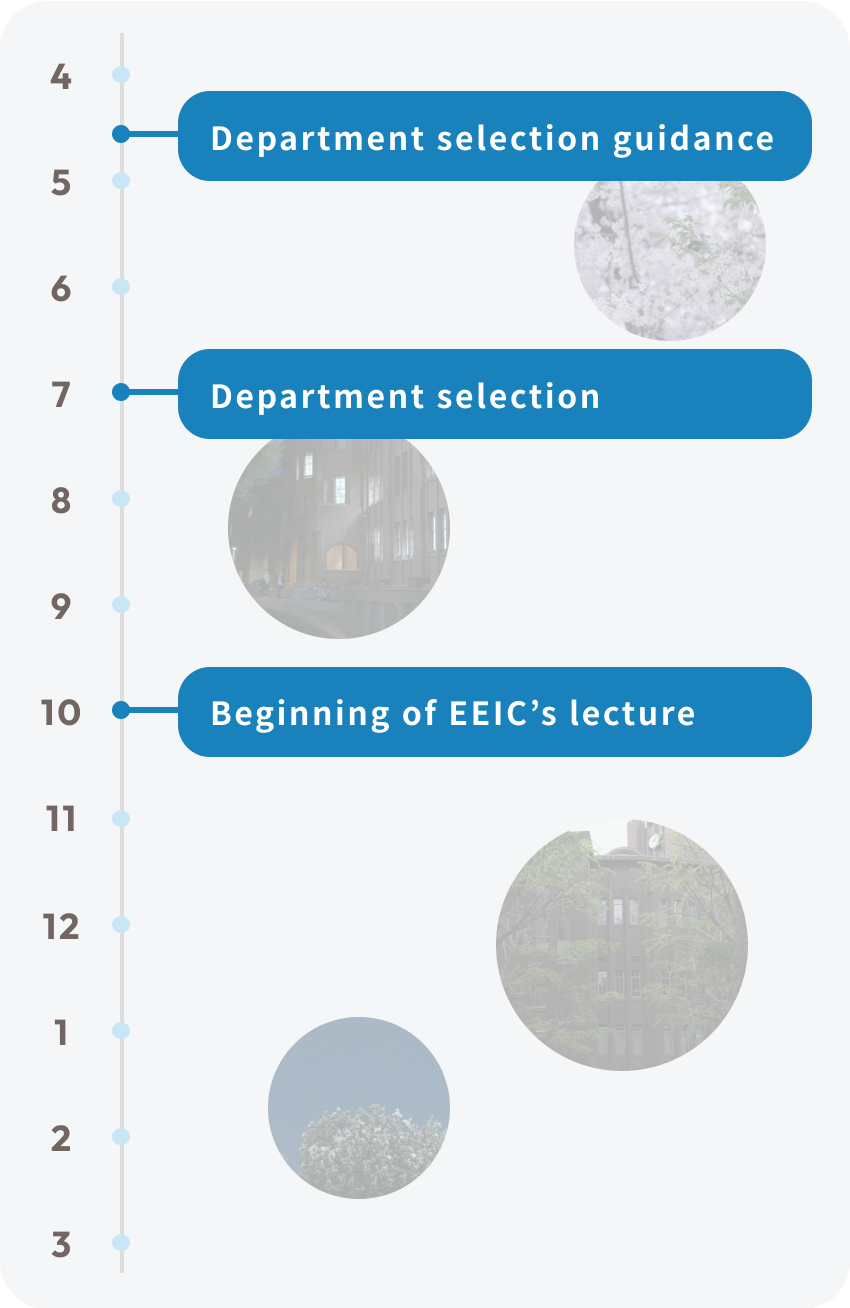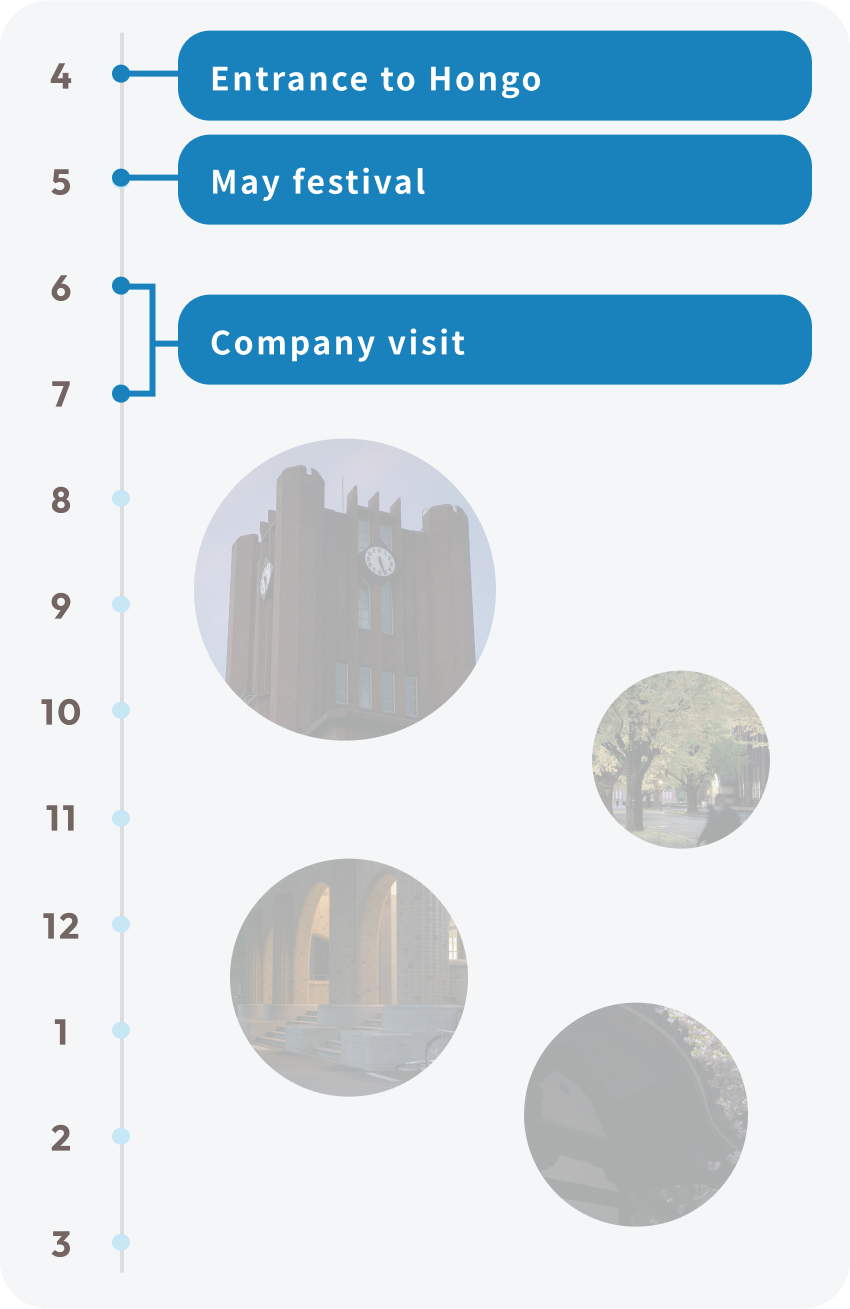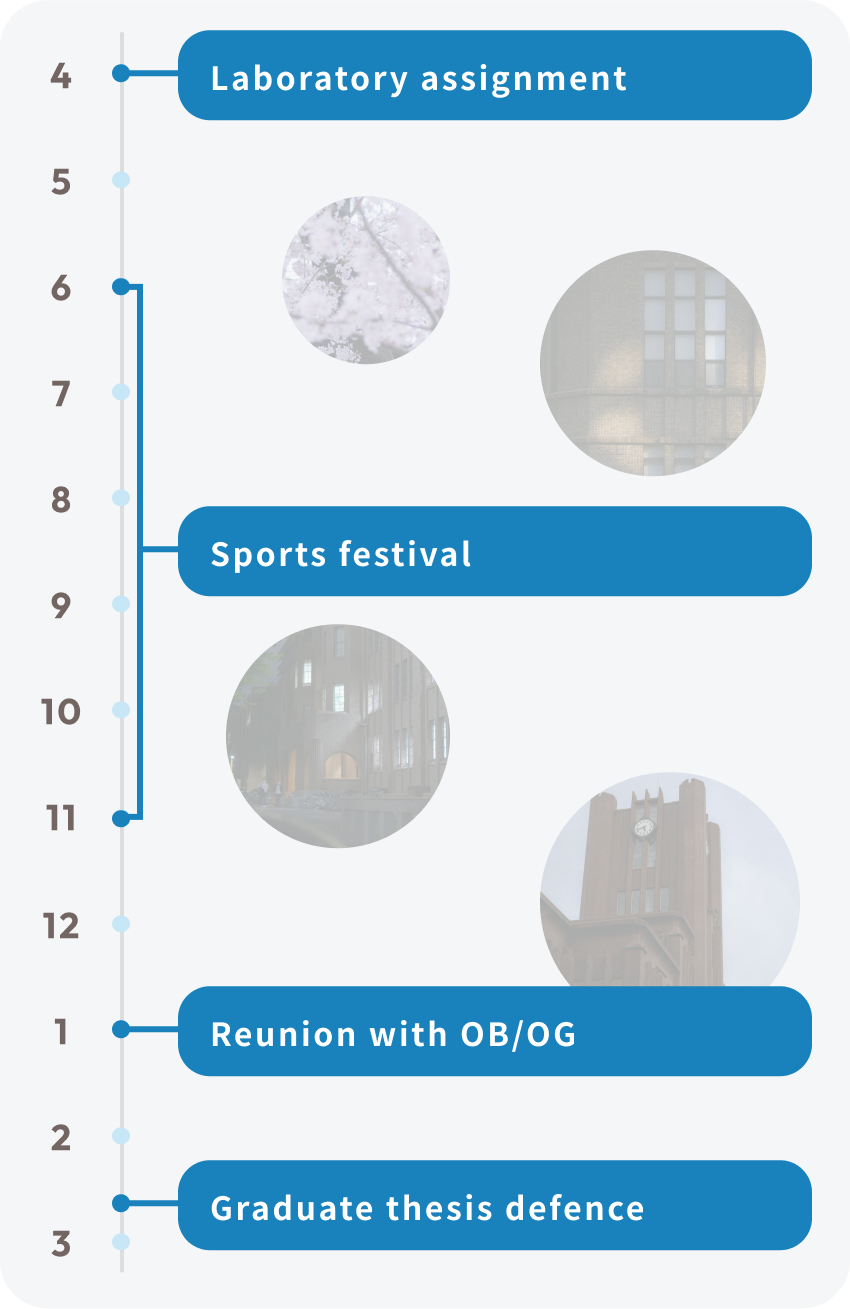Annual schedule
Unlike the College of Arts and Sciences, which offers a wide variety of fields of study and a diverse group of people, our department is centered on a common focus of research, which creates deep and intense interactions with like-minded faculty and peers. It also provides prospects for graduation and higher education, as well as the chance to experience the front lines of a company or research institute. As a senior undergraduate and a new researcher, your initiative will be increasingly demanded. Active and productive days await you.
Life in 2nd year
The 2nd year is a time to build a solid foundation. Students learn from the basics.
Specialized subjects are related to each other, so you can see approaches from various aspects. In the winter term, an orientation is held to determine the direction of subject selection.

October: Lectures on specialized subjects begin
Although the word "specialized" may sound difficult, lectures for 2nd year start from the basics of the field. Students carefully study priority subjects. The faculty members, who are also seniors in this field, will become more familiar to you than ever before. You will also find peers who share a common interest around you.
Life in 3rd year

April: Going on to Hongo Campus
The brand-new Faculty of Engineering Building 2, standing next to the Yasuda Auditorium, is the base for your studies. With personal lockers in the student waiting room, you should easily be able to settle down and engage in classes. Compared to the Komaba Campus, the Hongo Campus has a calmer and more suitable atmosphere for research, so you will be able to turn over a new leaf and acquire the knowledge that will form the foundation of your future research life.
In the 3rd year, students will conduct experiments. Mixed groups of electrical and electronic/information and communication engineering students will work on their experimental assignments. Each group is assigned a faculty member in charge of the group, who is available for consultation on student life.
May: May Festival
The department of electrical engineering puts on an exhibit every year to convey the appeal of electrical and information engineering. 4th year students take the lead in this project, but many 3rd year students are also involved. Each year, the department creates an elaborate exhibit, for example, selling electronic construction kits and creating games that can be played on the web. Website of May Festivalhttps://eeic.jp/
June: Company visits
During Friday afternoons in the summer term, we conduct company tours and visits to research sites such as JAXA's laboratories. While talking with electrical engineering alumni, students can realize how what they have learned in lectures and experiments can be applied in the real world. (This program has been suspended since AY2020 due to measures relating to the pandemic.)
Life in 4th year

In the 4th year, students are assigned to a laboratory and take the first step toward becoming a researcher. Take advantage of what you have learned and challenge yourself to take on unprecedented tasks. From this point on, your daily life will be based in the laboratory. With the support of experienced graduate students, you will feel yourself growing day by day until graduation.
Many people take a month or so off from the lab to study for the graduate exam.
April: Laboratory assignment
The laboratory to which the student will be assigned is determined based on the grades up to their 3rd year and preferences of the student. This will be the first time for them to be involved in research, but they will learn the basics of research methods under the guidance of their professors and seniors in each laboratory.
August: Graduate school entrance examinations
Many students go on to graduate school. Major graduate schools include: Department of Electrical Engineering and Information Systems; Department of Information and Communication Engineering, Graduate School of Information Science and Technology; Department of Advanced Energy, Graduate School of Frontier Sciences; Emerging Design and Informatics Course, Graduate School of Interdisciplinary Information Studies.
February: Graduation thesis presentations
The graduation thesis review is held in February, preceded by a mid-term review in October. If the graduation thesis is completed and passed by the review board, the student will officially graduate. The review board is held jointly by several laboratories, allowing students to catch a glimpse of the research being conducted in other laboratories.